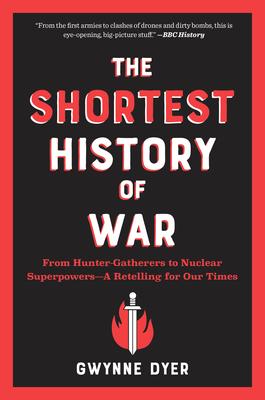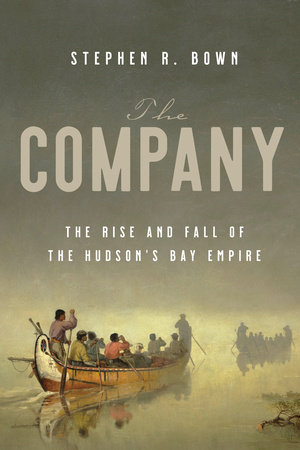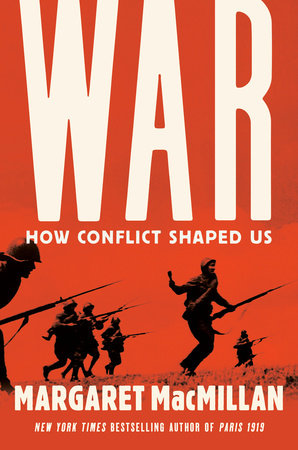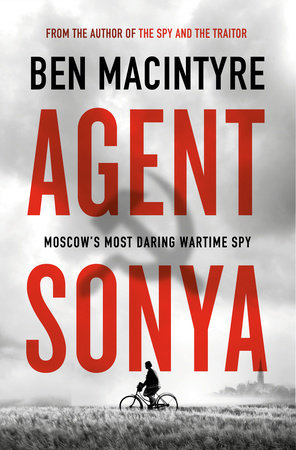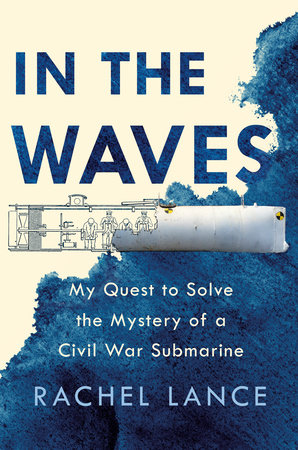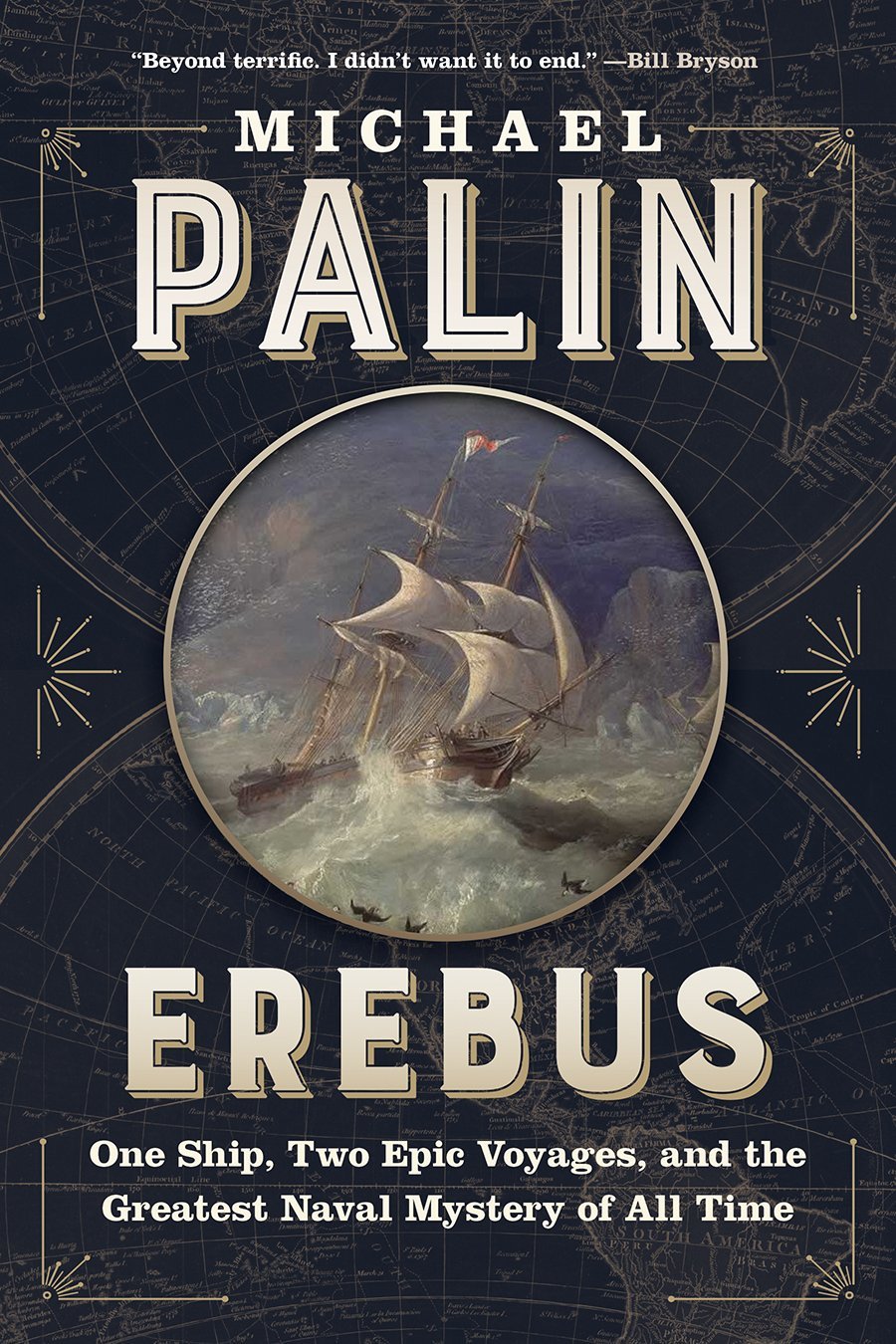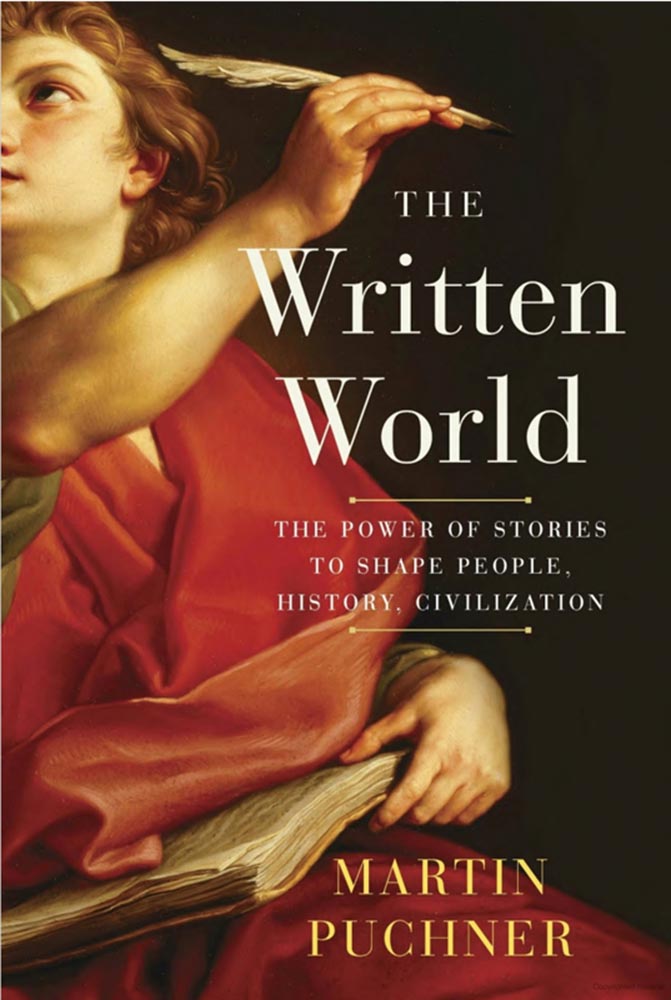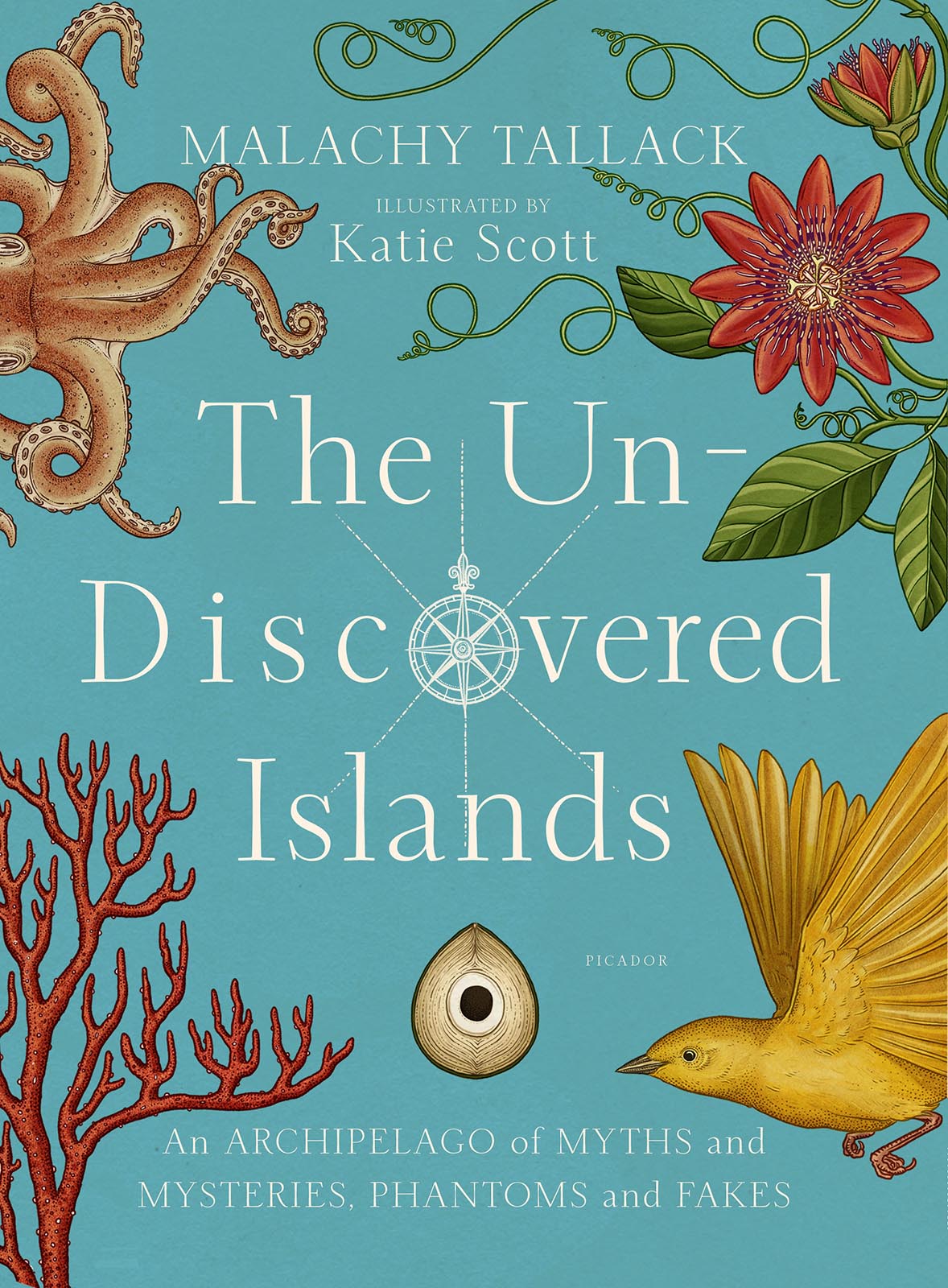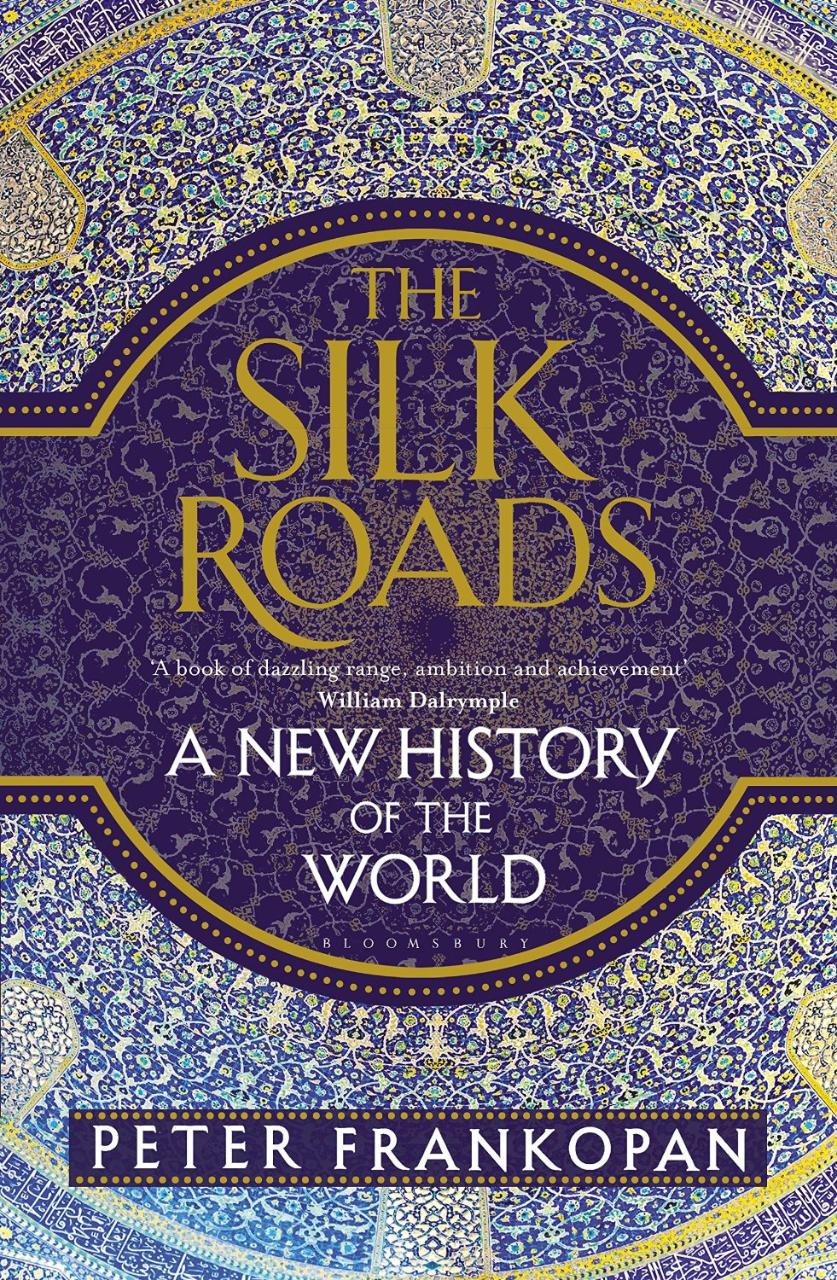The Shortest History of War by Gwynne Dyer
Acclaimed historian and military expert Gwynne Dyer tells the story of war from its earliest origins up to the present age of atom bombs and algorithms.
Dyer chronicles the advent of warfare in the first cities; the rise of inequality and tyranny as humans multiply; the thousand-year classical era of combat until the firearm and the Thirty Years’ War, which changed everything. He traces how the brief interlude of limited war before the popular revolutions of the eighteenth century ushered in “total war” — and how the devastation was halted by the shock of Hiroshima.
Russia’s invasion of Ukraine has punctured the longest stretch of peace between major powers since WWII. In a technologically advanced and hyper-connected world, we humans find ourselves in a most precarious position: under the heightened threats of climate change, nuclear war, and superpower rivalry. Far from another dry military history, The Shortest History of War synthesizes research from multiple fields of study and journalism into a highly readable, fast-paced, and enlightening read for anyone who wants to understand the role of war in the long human story — and how we can stop it from dominating our future.
In the Waves: My Quest to Solve the Mystery of a Civil War Submarine by Rachel Lance
How a determined scientist cracked the case of the first successful--and disastrous--submarine attack
On the night of February 17, 1864, the tiny Confederate submarine HL Hunley made its way toward the USS Housatonic just outside Charleston harbor. Within a matter of hours, the Union ship's stern was blown open in a spray of wood planks. The explosion sank the ship, killing many of its crew. And the submarine, the first ever to be successful in combat, disappeared without a trace.
For 131 years the eight-man crew of the HL Hunley lay in their watery graves, undiscovered. When finally raised, the narrow metal vessel revealed a puzzling sight. There was no indication the blast had breached the hull, and all eight men were still seated at their stations--frozen in time after more than a century. Why did it sink? Why did the men die? Archaeologists and conservationists have been studying the boat and the remains for years, and now one woman has the answers.
In the Waves is much more than just a military perspective or a technical account. It's also the story of Rachel Lance's single-minded obsession spanning three years, the story of the extreme highs and lows in her quest to find all the puzzle pieces of the Hunley. Balancing a gripping historical tale and original research with a personal story of professional and private obstacles, In the Waves is an enthralling look at a unique part of the Civil War and the lengths one scientist will go to uncover its secrets.
Erebus by Michael Palin
ntrepid voyager, writer and comedian Michael Palin follows the trail of two expeditions made by the Royal Navy's HMS Erebus to opposite ends of the globe, reliving the voyages and investigating the ship itself, lost on the final Franklin expedition and discovered with the help of Inuit knowledge in 2014.
The story of a ship begins after the defeat of Napoleon at Waterloo, when Great Britain had more bomb ships than it had enemies. The solid, reinforced hulls of HMS Erebus, and another bomb ship, HMS Terror, made them suitable for discovering what lay at the coldest ends of the earth.
In 1839, Erebus was chosen as the flagship of an expedition to penetrate south to explore Antarctica. Under the leadership of the charismatic James Clark Ross, she and HMS Terror sailed further south than anyone had been before. But Antarctica never captured the national imagination; what the British navy needed now was confirmation of its superiority by making the discovery, once and for all, of a route through the North-West Passage.
Chosen to lead the mission was Sir John Franklin, at 59 someone many considered too old for such a hazardous journey. Nevertheless, he and his men confidently sailed away down the Thames in April 1845. Provisioned for three winters in the Arctic, Erebus and Terror and the 129 men of the Franklin expedition were seen heading west by two whalers in late July.
No one ever saw them again.
Over the years there were many attempts to discover what might have happened--and eventually the first bodies were discovered in shallow graves, confirming that it had been the dreadful fate of the explorers to die of hunger and scurvy as they abandoned the ships in the ice.
For generations, the mystery of what had happened to the ships endured. Then, on September 9th, 2014, came the almost unbelievable news: HMS Erebus had been discovered thirty feet below the Arctic waters, by a Parks Canada exploration ship.
Palin looks at the Erebus story through the different motives of the two expeditions, one scientific and successful, the other nationalistic and disastrous. He examines the past by means of the extensive historical record and travels in the present day to those places where there is still an echo of Erebus herself, from the dockyard where she was built, to Tasmania where the Antarctic voyage began and the Falkland Islands, then on to the Canadian Arctic, to get a sense of what the conditions must have been like for the starving, stumbling sailors as they abandoned their ships to the ice. And of course the story has a future. It lies ten metres down in the waters of Nunavut's Queen Maud Gulf, where many secrets wait to be revealed.
The Un-Discovered Islands by Malachy Tallack, Katie Scott
InThe Un-Discovered Islands, critically acclaimed author Malachy Tallack takes the reader on fascinating adventures to the mysterious and forgotten corners of the map.
Be prepared to be captivated by the astounding tales of two dozen islands once believed to be real but no longer on the map. These are the products of the imagination, deception, and human error: an archipelago of ex-islands and forgotten lands. From the well-known story of Atlantis and the mysteries of frozen Thule to more obscure tales from around the globe, and from ancient history right up to the present day, this is an atlas of legend and wonder, with glorious illustrations by Katie Scott.
The Silk Roads by Peter Frankopan
A New History of the World.
Far more than a history of the Silk Roads, this book is truly a revelatory new history of the world, promising to destabilize notions of where we come from and where we are headed next. From the Middle East and its political instability to China and its economic rise, the vast region stretching eastward from the Balkans across the steppe and South Asia has been thrust into the global spotlight in recent years. Frankopan teaches us that to understand what is at stake for the cities and nations built on these intricate trade routes, we must first understand their astounding pasts.
Frankopan realigns our understanding of the world, pointing us eastward. It was on the Silk Roads that East and West first encountered each other through trade and conquest, leading to the spread of ideas, cultures and religions. From the rise and fall of empires to the spread of Buddhism and the advent of Christianity and Islam, right up to the great wars of the twentieth century—this book shows how the fate of the West has always been inextricably linked to the East.
The Secret Library by Oliver Tearle
The definitive collection of essays and reportage written during the past thirty years from one of most provocative and widely read writers--with new commentary by the author.
For more than thirty years, Martin Amis has turned his keen intellect and unrivaled prose loose on an astonishing range of topics--politics, sports, celebrity, America, and, of course, literature. Now, at last, these incomparable essays have been gathered together. Here is Amis at the 2011 GOP Iowa Caucus, where, squeezed between "windbreakers and woolly hats," he pores over The Ron Paul Family Cookbook and laments the absence of "our Banquo," Herman Cain. He writes about finally confronting the effects of aging on his athletic prowess. He revisits, time and time again, the worlds of Bellow and Nabokov, his "twin peaks," masters who have obsessed and inspired him. Brilliant, incisive, and savagely funny, The Rub of Time is a vital addition to any Amis fan's bookshelf, and the perfect primer for readers discovering his fierce and tremendous talents for the first time.
The Rub of Time by Martin Amis
Bellow, Nabakov, Hitchens, Travolta and Trump: Essays and Reportage 1994-2017
The definitive collection of essays and reportage written during the past thirty years from one of most provocative and widely read writers--with new commentary by the author.
For more than thirty years, Martin Amis has turned his keen intellect and unrivaled prose loose on an astonishing range of topics--politics, sports, celebrity, America, and, of course, literature. Now, at last, these incomparable essays have been gathered together. Here is Amis at the 2011 GOP Iowa Caucus, where, squeezed between "windbreakers and woolly hats," he pores over The Ron Paul Family Cookbook and laments the absence of "our Banquo," Herman Cain. He writes about finally confronting the effects of aging on his athletic prowess. He revisits, time and time again, the worlds of Bellow and Nabokov, his "twin peaks," masters who have obsessed and inspired him. Brilliant, incisive, and savagely funny, The Rub of Time is a vital addition to any Amis fan's bookshelf, and the perfect primer for readers discovering his fierce and tremendous talents for the first time.

